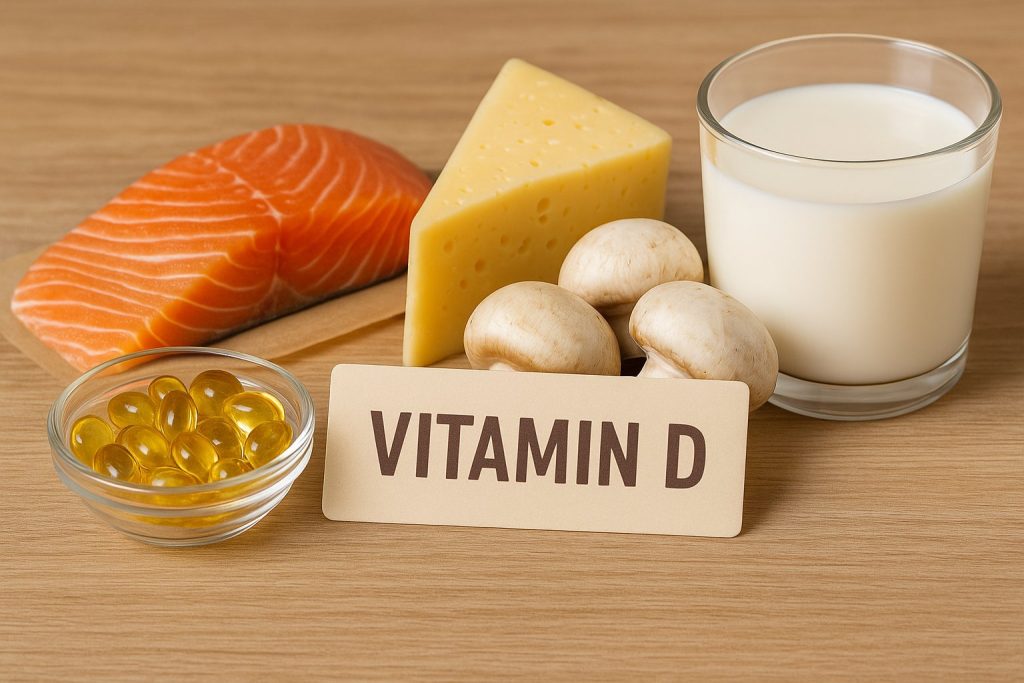Vitamin D: The Sunshine Vitamin and Its Role in Bone and Immune Health

What Is Vitamin D?
Vitamin D is a fat-soluble vitamin that plays a critical role in calcium absorption and bone health. Often referred to as the “sunshine vitamin,” it is synthesized by the body when skin is exposed to sunlight. It can also be obtained through certain foods and supplements.
There are two main forms:
- Vitamin D2 (ergocalciferol) – found in some plants and fortified foods
- Vitamin D3 (cholecalciferol) – synthesized in the skin and found in animal-based sources; generally more effective at raising blood levels
Why Vitamin D Matters in 2025
In recent years, there’s been growing awareness of widespread vitamin D deficiency, especially in regions with low sunlight exposure. In 2025, it is increasingly recognized not only for its impact on bone density, but also for its influence on the immune system, mental health, and chronic disease prevention.
Key Benefits of Vitamin D
- Enhances calcium absorption, supporting the development and maintenance of strong bones and teeth
- Reduces risk of osteoporosis and fractures, especially in older adults and postmenopausal women
- Supports immune function, potentially lowering the risk of infections and inflammatory conditions
- May improve mood and reduce depression, according to studies linking low vitamin D levels to seasonal affective disorder (SAD) and general mood imbalances
- Contributes to muscle function, helping reduce the risk of falls in the elderly
Natural Sources of Vitamin D
It’s challenging to get enough vitamin D from food alone, but these sources can help:
- Fatty fish: salmon, sardines, mackerel
- Cod liver oil
- Egg yolks
- Beef liver
- Fortified foods: milk, cereals, orange juice, and plant-based alternatives (e.g. almond milk)
Sunlight Exposure and Supplementation
The most efficient way to get vitamin D is through direct sunlight, ideally 10–30 minutes several times per week, depending on skin type and location. However, factors like sunscreen use, age, skin pigmentation, and indoor lifestyles can limit synthesis.
In such cases, supplementation becomes essential. In 2025, vitamin D3 remains the preferred form due to better absorption. Supplements often come combined with vitamin K2, which helps guide calcium to bones and away from arteries.
Conclusion
Vitamin D continues to be one of the most essential yet overlooked nutrients in modern health. Whether through safe sun exposure, nutrient-rich foods, or high-quality supplements, maintaining adequate levels is fundamental for bone strength, immunity, and overall well-being.




